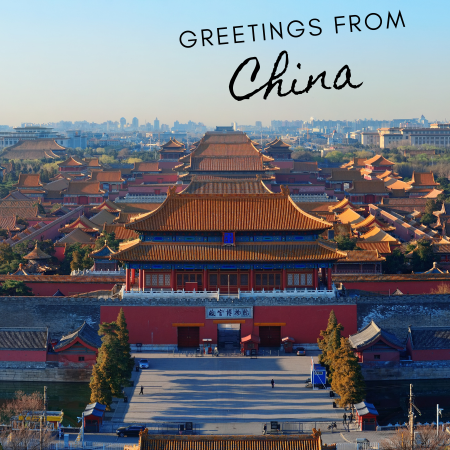The Best Chinese Beers and History of Beer in China


In the vast expanse of China’s culinary and beverage landscape, beer holds a unique and evolving position. While the world often associates China with its millennia-old tea culture or its fiery spirits like baijiu, beer has been quietly fermenting its own legacy. From ancient brews concocted with rice, honey, grape, and hawthorn fruits over 7,000 years ago to the bustling craft beer scenes of Beijing and Shanghai, the story of Chinese beer is one of tradition, transformation, and tenacity. In this article, we’ll embark on a journey through time, exploring the deep-rooted history of beer brewing in China, the diverse styles that have emerged, the rise of craft beer, and the best Chinese beers that have made a mark both nationally and internationally. So, whether you’re a beer enthusiast looking to expand your horizons to include Asian beers, or simply curious about China’s take on this beloved beverage, grab a pint and join us on this flavorful expedition.


The History of Beer Brewing in China
China, a country renowned for its ancient civilization, has a rich tapestry of traditions and beverages. While tea is undeniably the nation’s most celebrated drink, beer has carved its own niche in the annals of Chinese history.
Ancient Beginnings
The roots of beer brewing in China can be traced back over 7,000 years. Recent archaeological discoveries suggest that ancient Chinese villagers were brewing beer-type alcoholic drinks made with rice, honey, grape, and hawthorn fruits, offering a sweet and tangy flavor profile. These findings suggest that ancient Chinese civilizations had a basic understanding of fermentation and were brewing beer-like beverages long before many of their contemporaries. This ancient brew, however, was quite different from the beer we know today. This early beer seems to have been produced similarly to that of ancient Egypt and Mesopotamia. Ancient Chinese beer played a significant role in ancestral worship, funeral, and other rituals during the Xia, Shang, and Zhou dynasties, known as Lao Li.
Modern Era
The turn of the 20th century marked a significant shift in China’s beer landscape. With the advent of globalization and the influence of Western cultures, modern beer brewing techniques were introduced. The establishment of the Tsingtao Brewery in 1903, by German settlers in Qingdao, was a pivotal moment. This introduction of Western-style lagers laid the foundation for the growth of local breweries across the nation. Over the decades, beer slowly gained popularity, especially in urban areas, becoming a staple in social gatherings and celebrations.
The Influence of Globalization
As China opened its doors to the world in the late 20th century, international beer brands made their foray into the vast Chinese market. Brands like Budweiser, Heineken, and Carlsberg became household names. However, their presence did more than just offer additional choices to consumers; it sparked a sense of competition and innovation among local brewers. This period saw a surge in quality and variety, with Chinese breweries upping their game to match global standards.
The history of beer in China is a testament to the country’s ability to adapt and evolve. From ancient brews to modern lagers, China’s beer journey is as diverse and dynamic as its vast landscape. As we delve deeper into the world of Chinese beer, we’ll discover the unique styles and flavors that make it stand out on the global stage.
Common Styles of Beer in China
China’s beer landscape is as diverse as its vast geography and rich culture. While the influence of Western brewing techniques is evident, China has also managed to infuse its own flavors and traditions into the mix. Let’s explore some of the most common styles that have quenched the thirst of millions across the country.
Pale Lagers
This is the predominant style in China. Pale lagers are light in color, crisp, and have a mild hop flavor. They are refreshing and are often enjoyed cold, making them a popular choice in China’s often warm climate. The iconic Tsingtao Lager is a prime example of this style.
Rice Lagers
Given that rice is a staple grain in China, it’s no surprise that it finds its way into beer production. Rice lagers are light-bodied with a delicate sweetness and a clean finish. They are less bitter than some other beer types. Snow Beer, one of the world’s best-selling beers by volume, is a notable rice lager.
Chinese Craft Beer (Pale Ales & IPAs)
With the global craft beer movement making its mark in China, styles like Pale Ales and IPAs (India Pale Ales) have gained popularity, especially among the younger generation. These beers are hop-forward, offering a bolder taste profile. Many craft breweries in China are experimenting with these styles, often incorporating local ingredients like Sichuan peppercorns or teas to create unique flavors.
Traditional Brews
While less common on a commercial scale, there are traditional Chinese brews that incorporate herbs, fruits, or even medicinal roots. Some unique brews even use bitter melon as a bittering agent instead of hops.
While the first two styles dominate the market in terms of volume and widespread consumption, the craft beer scene in China is rapidly growing, introducing a wider variety of beer styles and flavors to the market.
Most Popular Chinese Beer Brands
China Resources Snow Breweries (CR Snow)
Established in 1993, CR Snow is headquartered in Dongcheng, Beijing, and stands as the largest brewing company in China. Originally known as the Shenyang Snow Beer Company, it was initially a joint venture between China Resources Enterprise and the UK-based multinational SABMiller. However, it is now fully owned by China Resources Enterprise. With a market share of around 21%, CR Snow sold a staggering 9.28 billion liters of beer in China in 2010. Its principal brand, Snow Beer, holds the title of the world’s best selling beer by volume, with sales reaching approximately 16.5 billion pints in 2010. In addition to Snow Beer, CR Snow boasts a diverse portfolio of brands, including Blue Sword, Green Leaves, Huadan, Huadan Yate, Largo, Löwen, New Three Star, Shengquan, Shenyang, Singo, Sip, Tianjin, Yatai, Yingshi, and Zero Clock. A significant move in the company’s history was in July 2011 when CR Snow acquired a 49% stake in Jiangsu Dafuhao Breweries and 100% of Shanghai Asia Pacific Brewery from Heineken International for 870 million yuan (US$134.42 million)
Tsingtao Brewery
Situated in Qingdao, Shandong, China, Tsingtao Brewery was founded in 1903 by German settlers in the Kiautschou Bay Leased Territory. Today, it stands as China’s second-largest brewery, holding approximately 15% of the domestic market share. Moreover, this best-selling beer brand accounts for half of China’s national beer exports. The brewery’s flagship product is the Tsingtao Lager, a well-hopped standard pale lager with a 4.7% alcohol by volume (ABV). Another notable variant is the Tsingtao Draft Beer. Historically, Tsingtao Beer was advertised as being “brewed with mineral water from the Laoshan Spring”, which was a significant contributor to its unique flavor. However, this claim now only applies to beer produced in Qingdao and not to that produced in the company’s other breweries. An intriguing fact about Tsingtao Brewery is its origin: it was established by the Anglo-German Brewery Co. Ltd., an English-German joint stock company based in Hong Kong, which owned it until 1916. The brewery primarily catered to Europeans residing in China.
Arguably the most iconic Chinese beer, Tsingtao Lager is a pale golden brew with a crisp and slightly malty flavor. Originating from the coastal city of Qingdao, this light lager is a testament to German brewing techniques blended with local ingredients. Its light and refreshing taste makes it a favorite, especially during the hot and humid summers.
Beijing Yanjing Brewery
Founded in 1980, Beijing Yanjing Brewery is located in the Shunyi District of Beijing, China. As a state-owned enterprise, it has grown to become the third-largest brewery in China and the eighth-largest in the world, producing 57.1 million hectoliters of beer in 2013. The brewery is renowned for its range of mainly pale lagers under the brand name Yanjing, with other notable brands including Liquan, Huiquan, and Xuelu. A point of pride for the brewery is that Yanjing Beer was designated as the official beer served at state banquets in the Great Hall of the People in February 1995. This recognition not only showcases the brand’s quality but also its significance in Chinese culture.
Harbin Brewery
Located in Harbin, China, Harbin Brewery was founded in 1900 and stands as China’s oldest brewery. As the fourth-largest brewery in the country, it has a leading position in Northeast China and is renowned for its Hapi beer brand. Over the years, Harbin Brewery has expanded its annual beer production capacity to over 1 million tons, becoming a significant player in China’s beer industry. One of its most popular beers is the Harbin Beer, a 4.8% ABV pale lager that uses European and Chinese “Qindao Dahua” hops, two-row malt, and German yeast. An interesting fact about Harbin Brewery is its history, which dates back to when Jan Wróblewski, a Pole from Tarczyn, founded it to supply Russians working on the Trans-Manchurian Railway project. Over the years, the brewery underwent several name changes and ownerships, including a period of Soviet control, before becoming the renowned brand it is today.
Zhujiang Brewery (Guangzhou Zhujiang Brewery Group)
Established in 1985, Zhujiang Brewery, also known as Guangzhou Zhujiang Brewery Group, is a state-owned enterprise located in Guangzhou, Guangdong. As one of the largest single-site production facilities in the world, Zhujiang Brewery primarily deals in beer and related products. Its flagship beer, Zhujiang Beer, is a 5.3% ABV pale lager and stands as one of the four national beer brands in China. Consumed at an astonishing rate of 48,000 bottles per hour, Zhujiang Beer is particularly popular in southern China and is exported to numerous countries, including Canada, France, Australia, the United States, South Korea, Sweden, and the UK. The beer is named after the Pearl River (Zhu Jiang in Chinese) since Guangzhou is situated in the Pearl River Delta. A unique aspect of Zhujiang Beer is its brewing process, which uses water piped directly from a natural spring source to ensure quality and freshness. This fresh spring water is combined with Czech hops, German yeast, and Canadian barley malt to produce the beer.
Kingway Brewery
Kingway Brewery, officially known as Kingway Brewery Holdings Limited, is a prominent beer manufacturer based in Shenzhen, Guangdong. Founded in 1990, it has grown to become a leading beer maker in China and is a subsidiary of the government-owned Guangdong Holdings Group. The Dutch brewing company Heineken International holds a 21% share in the company. Kingway Brewery produces, distributes, and markets beer in over 20 provinces under labels such as “Kingway Beer”, “Kingway Draft”, and “Super Fresh Kingway”. In a significant move in February 2013, Kingway Brewery announced its takeover by China Resources Enterprise, Ltd in a deal valued at $863.2 million. The brewery’s commitment to quality is evident, as it applies traditional German brewing techniques, specializing in beer production.
Wusu Beer
Originating from Xinjiang, China, Wusu Beer is a product of the Wusu Beer Group, a joint venture equally shared between the Carlsberg Group and Xinjiang Hops. Named after the city of Wusu, this beer has been a cherished beverage in the region for many years. The beer presents a bright golden hue, crowned with a thick, creamy head. Its aroma is a harmonious blend of fresh maltiness and a subtle ester fragrance, offering a mellow richness to the senses. On the palate, Wusu Beer is full-bodied and refreshing, characterized by its soft and pure flavor. The beer leaves a lingering aftertaste, testament to its well-crafted composition. Its robust malty notes mirror the extraordinary warmth of the Xinjiangese people, making it a favorite among local consumers.
China’s Beer Legacy
China’s beer landscape is a fascinating blend of ancient traditions and modern innovations. From the historical brews of Harbin to the contemporary flavors of Wusu, the journey of Chinese beer is as diverse as the nation itself. Each brewery and brand tells a unique story, reflecting the regional tastes, cultural influences, and the ever-evolving preferences of its people. As the world’s largest beer market, China continues to shape the global beer narrative, introducing flavors that resonate with both local and international palates. Whether you’re sipping a cold Tsingtao on a summer day or exploring the rich malty notes of a Wusu beer, one thing is certain: China’s beer legacy is as deep and flavorful as its history. So, the next time you raise a toast, remember the centuries-old traditions and the passionate brewers behind every bottle, and savor the taste of China’s rich beer heritage.Thank you!
If you found this article was helpful, please share it with your friends using the social media share buttons below! We need your help getting the word out about BrewTogether!
Leave a comment below or post in the forums! The BrewTogether Community is made up of an awesome group of homebrewers around the world. We are always supportive and happy to help answer your questions about brewing your perfect beer!
If you’re not a member of BrewTogether, we’d love for you to join! BrewTogether is completely free, and signing up is easy! Click here to join! We’d love to have you as a member of the BrewTogether Community!
Now using BrewTogether is easier than ever! Download the FREE BrewTogether Mobile App – available on both the Apple App Store and the Google Play Store! The BrewTogether App is completely free and drastically improves the experience of using BrewTogether on a mobile device.
Affiliate Disclosure: BrewTogether is a participant in the Amazon Services LLC Associates Program, an affiliate advertising program designed to provide a means for us to earn fees by linking to Amazon.com and affiliated sites. BrewTogether is also a participant in an affiliate program with MoreBeer, our favorite online homebrewing equipment/ingredients retailer. Some of the links in this article are affiliate links, which means that if you choose to make a purchase after clicking the link, I will earn a small commission at no additional cost to you. Please feel free to reach out with questions. Thank you for your support!






Responses